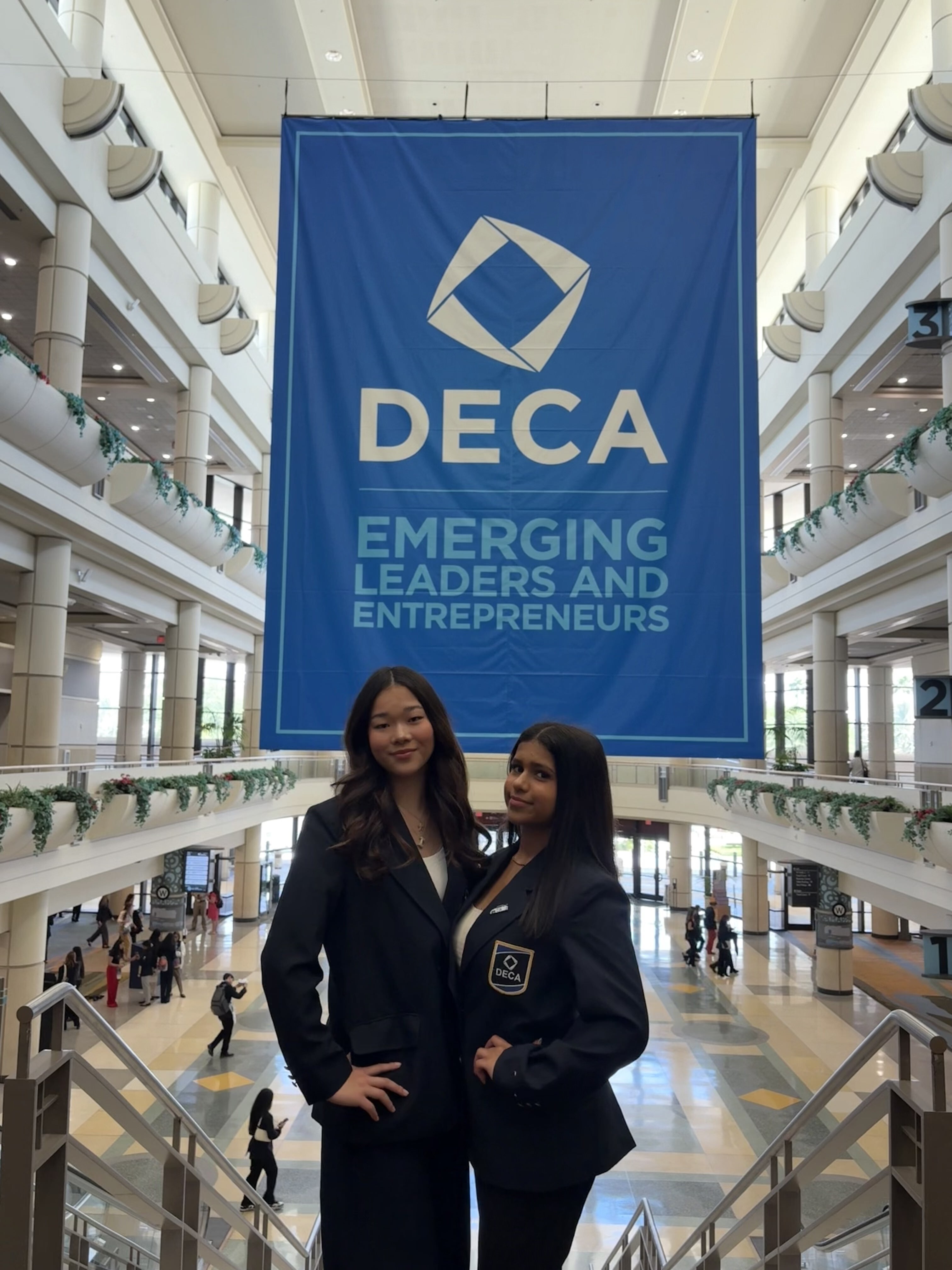Teen Duo Innovates Women’s Health Tech

With its newest cutting-edge technology or its out-of-the-box inventions, Bellevue is home to never-ending innovation. And as a result, the city’s creativity has spread and fostered a growing population of mini-entrepreneurs. These mini-entrepreneurs are made up of none other than the city’s high school students, or as some may see it, the next generation of inventors and the future of the city.
Two of these young entrepreneurs are Hasini Juluri from Bellevue High School and Isabel Xu from The Overlake School, both juniors in the Class of 2027. In May, they placed among the Top 10 finalists in the Blue Ocean Entrepreneurship Competition 2025, the largest entrepreneurship pitch competition for high school students in the world, with participation from 12,700 students from 163 countries. They pitched a modern solution to address early breast cancer detections, and in honor of October being Breast Cancer Awareness Month, it is only appropriate to recognize their success.
In January, Hasini and Isabel entered themselves in the Blue Ocean competition and came up with the idea to find non-invasive solutions to breast cancer detection, spending the next two months researching and designing their pitch. “Early detection saves lives. When breast cancer is caught in its earliest stages, the survival rate is as high as 99%. Yet current screening methods like mammograms can miss up to one in eight cases of breast cancer. Women under 50 are also typically overlooked by standard screening guidelines. That’s where our idea ‘Hera’ comes in,” Hasini and Isabel stated in their pitch video.
Hera, a non-invasive wearable patch, is not only an alternative to current screening methods, but also a solution to promote more accessible healthcare for women. Unlike regular hospital screenings that require patients to clear their busy schedules, Hera allows women to monitor their health from their homes. The patch works by collecting data from various sensors like temperature sensors that measure heat and microfluidic sensors that detect changes in tissue stiffness. Increases in heat and tissue stiffness are signs of abnormal cell activity which may eventually form a tumor. Therefore, with the patch and the Hera app, users can detect these fluctuations in real time and have a higher chance of preventing and detecting signs of breast cancer.
However, from idea to pitch, Hasini and Isabel still faced challenges. “The hardest part was taking a complex medical challenge like breast cancer detection and making it a practical concept. Since we weren’t building a real prototype, we also had to make sure our pitch was grounded in research and still convincing,” Hasini commented. “We had to focus on building a strong pitch backed by market potential.” For their visuals, Hasini and Isabel used Canva, Excel, and PowerPoint and developed their idea from the ground up. They spent the weeks sketching potential prototypes, organizing PowerPoint slides, and drafting up scripts for their pitch. They researched market trends, reasonable budgets for the project, and had to project their future revenue if the patch was produced. In the end, they earned their spot in the Top 10 out of 12,700 participants. Despite not developing a physical prototype of the patch, Hasini and Isabel have demonstrated their ability to innovate and their potential as entrepreneurs.
“This experience gave us some insight into how powerful entrepreneurship can be when applied to healthcare. We plan to keep entering innovation competitions and exploring new ideas that combine our interest in business and impact in the women’s healthcare space. While we may not pursue this exact patch right now, it’s definitely given us insight on how we can be involved with preventive healthcare from an entrepreneurial perspective,” they share. This sentiment of continued innovation can also be seen in 2022, where Hasini and Isabel, earned second place in North America in the Technovation App Development Competition, another entrepreneurial competition, for their pitch on an app that makes reproductive healthcare more accessible for women.
In school, Hasini and Isabel are also successful in business-based competitive clubs like DECA, an organization focused on business, entrepreneurship, marketing, and hospitality. Moreover, in April, both Hasini and Isabel qualified for the international competition for DECA, with Hasini even placing Top 10 in the world in the Automotive Services Marketing event. Evidently, Hasini and Isabel are on their way to solidifying their position as the future entrepreneurs of Bellevue, or even the world. However, it goes without saying that the key to success is mentorship and guidance. So, if you want to jumpstart your career as an entrepreneur, take some advice from the past finalists:
“Start with a problem you care about. For us, we started looking in the women’s health care space, and don’t worry if you don’t have all the answers. You don’t need a finished product to make an impact. Instead, you need curiosity and research. Competitions like Blue Ocean are a great way to practice entrepreneurship and learn how to pitch.”